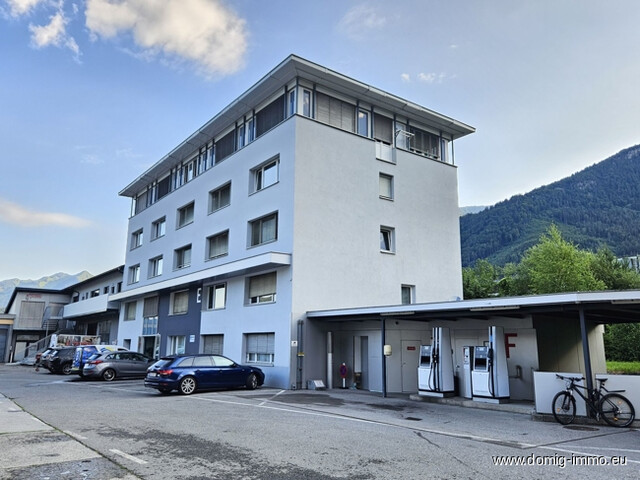Industry Strategy to be Presented at the Beginning of 2026

The Ministry of Infrastructure mentioned "early January" as the timing upon APA request, while the Ministry of Economy spoke of "early 2026". In light of the years-long industrial decline, including job cuts, industry representatives are eagerly awaiting the government's industrial policy strategy.
It was reported in the media that the Industry Strategy 2035 would be presented at the government retreat in January. Numerous proposals from companies, employee representatives, social partners, regional location agencies, and academia have been submitted for the strategy, according to the Ministry of Economy to APA. "Currently, the phase of actual formulation of the strategy is underway, as well as the coordination of still open points between the coalition partners and the social partners," explained the Ministry of Infrastructure. According to the two ministries, several work and coordination meetings per week are taking place until the strategy is completed. Little is known about the content details yet.
Industry Strategy is in the Government Program
The ÖVP/SPÖ/NEOS government, in office since March 2025, has collected numerous keywords under the point "Industry Strategy - Long-term" in its government program. The government agreement addressed, among other things, "affordable energy" for more Made in Austria, a skills and qualification strategy, key technologies, and a transformation fund. The ÖBAG, as the manager of state holdings, was also mentioned as an "industrial policy backbone."
Leading the efforts for the industry strategy in the government are Minister of Economy Wolfgang Hattmannsdorfer (ÖVP), Minister of Infrastructure Peter Hanke (SPÖ), and State Secretary Josef Schellhorn (NEOS). "We need a comprehensive action plan to increase our competitiveness, starting with energy costs to reducing bureaucracy," said Minister of Economy Hattmannsdorfer. "It is important to me that people also benefit from this - through high-quality jobs and securing our prosperity," said Minister of Infrastructure Hanke. "To make Austria's industrial location future-proof, we also need less bureaucracy and more practical relevance, which is why we will also present our first major debureaucratization package on December 3," explained Schellhorn.
Eco Austria: Individual Measures Are Not Enough
The WKÖ faction Freedom Economy (FW) urged last week for an early presentation of the industry strategy. "The industry needs actions instead of headlines," demanded FW representative Eduard Fischer.
The head of the industry-related economic research institute Eco Austria, Monika Köppl-Turyna, warned against a package of individual measures in the planned industry strategy. Decades-long issues cannot "be tackled with individual measures anymore," said Köppl-Turyna to the APA. As a model, the economist referred to the Scandinavian countries, which implement long-term strategies. "Long-term planning must also be reflected in the budget," said the Eco Austria head.
Economic Researchers Recommend Binding Milestones
Köppl-Turyna recommends the government adopt a cross-departmental strategy that systematically interlinks tax, labor market, energy, innovation, and education policies. Individual measures or sectoral initiatives would not suffice to strengthen the location. For the implementation of the strategy, clear responsibilities, binding milestones, and overarching management are needed.
For the liberal economic research institute, "a central lever" for the industry strategy is a reduction in location costs. A consolidation of the funding system and a better distribution of tasks and financing between government levels are also necessary. Essential for the industrial location are investments in key technologies such as GreenTech, digitalization, and life sciences, tax incentives for private investments and venture capital, as well as the expansion of digital infrastructure. The labor market must also be considered in the industrial policy strategy according to Eco Austria. In addition to a lower tax burden, stronger incentives for full-time work, higher participation of older workers, the expansion of childcare, and targeted qualification measures in technical and digital professions are needed. To meet the demand for skilled workers in the long term, qualified immigration should be facilitated, recommend the economic researchers.
(APA/Red)
This article has been automatically translated, read the original article here.
Du hast einen Hinweis für uns? Oder einen Insider-Tipp, was bei dir in der Gegend gerade passiert? Dann melde dich bei uns, damit wir darüber berichten können.
Wir gehen allen Hinweisen nach, die wir erhalten. Und damit wir schon einen Vorgeschmack und einen guten Überblick bekommen, freuen wir uns über Fotos, Videos oder Texte. Einfach das Formular unten ausfüllen und schon landet dein Tipp bei uns in der Redaktion.
Alternativ kannst du uns direkt über WhatsApp kontaktieren: Zum WhatsApp Chat
Herzlichen Dank für deine Zusendung.








